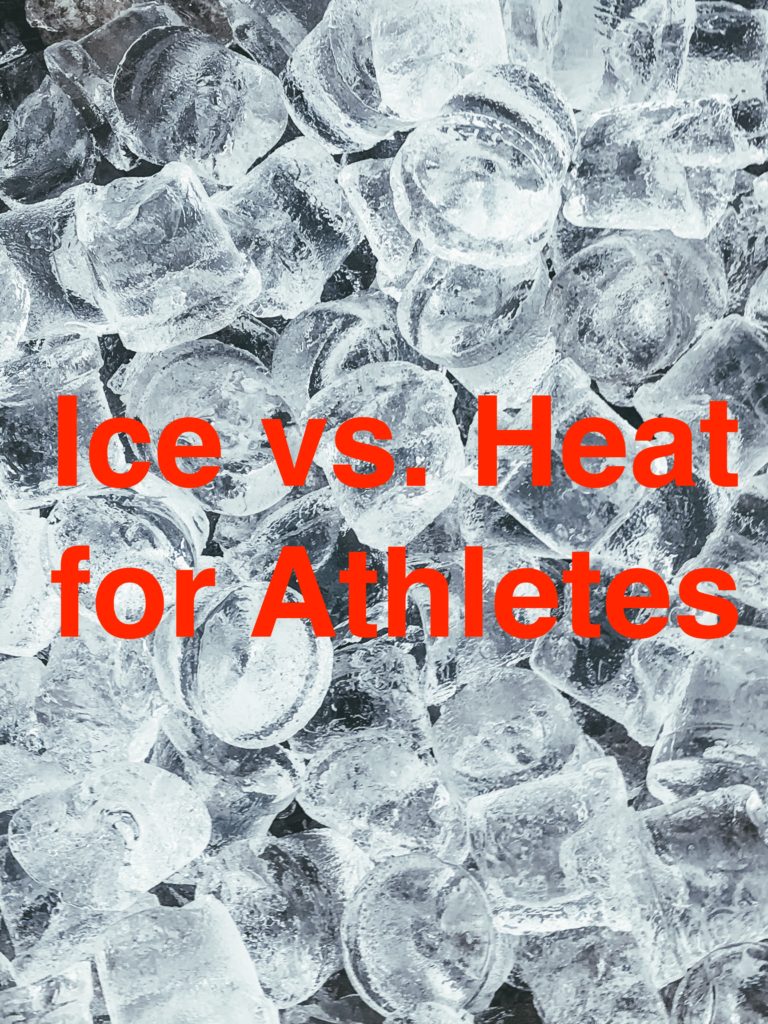Cold vs. Heat Therapy and Contrast Bath from JV's blog

What is better: hot or cold therapy?
Sauna tents, cold plunges, ice baths, heat packs…what is best? And do you need both, like with contrast bathing where you alternate hot and cold therapy? It all depends on the circumstances and your goals!
Cold can reduce inflammation and swelling, but that isn’t necessarily a good thing all the time. When an injury occurs, inflammation is what helps with the healing process. Blunting inflammation immediately after being injured may not be ideal. Always consult with a doctor, physical therapist, orthopedist, or other healthcare professional before doing any kind of home treatment for an injury.
Cold therapy (Ice baths, ice packs, cryotherapy)
Pros: Mixed research suggests it may:
- Speed up recovery
- Enhance power the next day after a hard workout
- Improve performance
- Increase high intensity sprint performance
- Have an analgesic effect (dulls or numbs pain)
- Lower sensation of muscle soreness
- Decreased muscle swelling
- Decreased inflammation
You may want to use ice baths when you need to perform well on back-to-back hard days, such as two-a-day workouts or important multi-day competitions. They can also be helpful if you are fatigued or injured and need to make the next session really count. Ice baths can help cool body core temperature to improve performance in very hot weather.
Cons: While ice baths may help with recovery or blunting pain, they may not be great for long-term gains. Most research in this area shows it blunts a key signaling protein that helps with muscle building and recovery.
One really cool study took athletes through an exercise protocol, then gave them a protein shake and used tracers so they could see exactly where the protein molecules ended up in the body. They had the athletes place one leg in an ice bath and the other in a neutral temperature bath. The leg in the cold bath took up significantly less amino acids from the protein shake. This means that the cold bath blunted training adaptations and muscle rebuilding and repair. Longer-term similar studies have shown lower muscle protein synthesis and muscle mass and strength when using cold baths.
Heat therapy (Saunas, hot tubs, hot baths, heat packs)
Pros: It feels so nice! Heat therapy can help with body acclamation to hot weather. If you live in a cold climate but are headed to a hot/humid location for a training camp or big outdoor adventure, heat therapy can train your body to tolerate the weather.
Heat therapy can help make tight muscles feel more relaxed. It may be helpful for chronic tightness or overuse injuries. Heat shouldn’t be used if there is any kind of swelling. Heat also dampens inflammation on an acute injury, which is not ideal.
Other potential pros include:
- Increased blood flow
- Increased skin temperature
- Analgesic effect (pain relief)
- Increased range of motion (may be important if flexibility is key to your athletic endeavor)
- Increased connective tissue elasticity
- Improved capillary circulation
- Decreased perceived muscle stiffness
Cons: Heat doesn’t do much to penetrate below the skin, so it will not have any profound effects. There is a risk for burns, especially with fragile skin (such as over wounds), so use caution when using heat.
Contrast bathing: (Alternating cold and hot therapies)
Alternating cold and heat is not new, but there is very limited research on its usefulness and effectiveness. It seems to be, at best, a way to reduce perception of pain and fatigue. There is not enough research to determine specific protocols or even if they are effective (or ineffective!). It seems that for now it can be used for pain relief, but there is such limited understanding and research that I would not recommend alternating cold and hot therapies for long-term or short-term recovery. Anecdotally, physical therapists report that outcomes seem to depend on the individual. Some people swear by it, others don’t see a good outcome.
So should you use hot or cold therapy, or contrast bathing? If you’re looking for quick recovery or pain relief, these are viable options. Steer clear of cold therapy if you’d like to see long-term gains.
~This is general information only and not medical advice. Always ask your healthcare provider before doing any kind of intervention or therapy.

The Wall